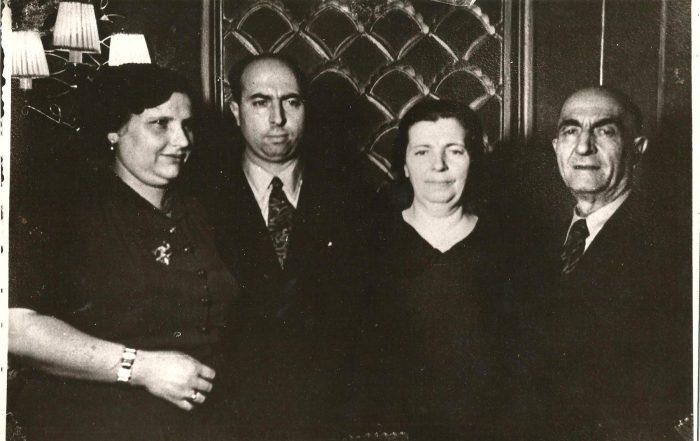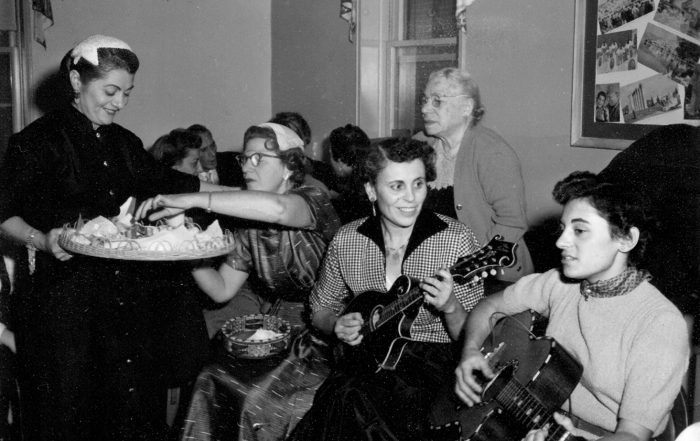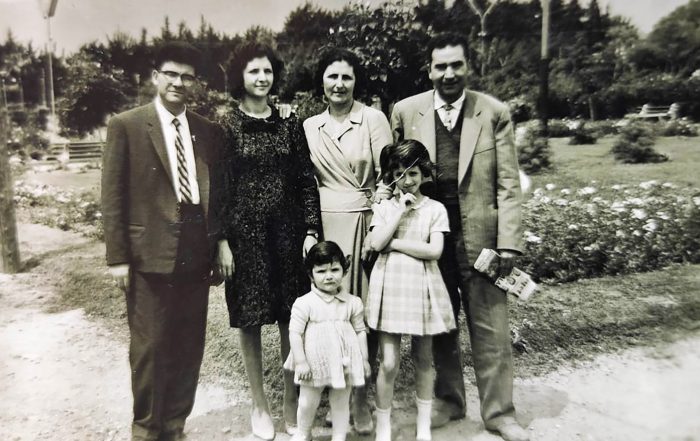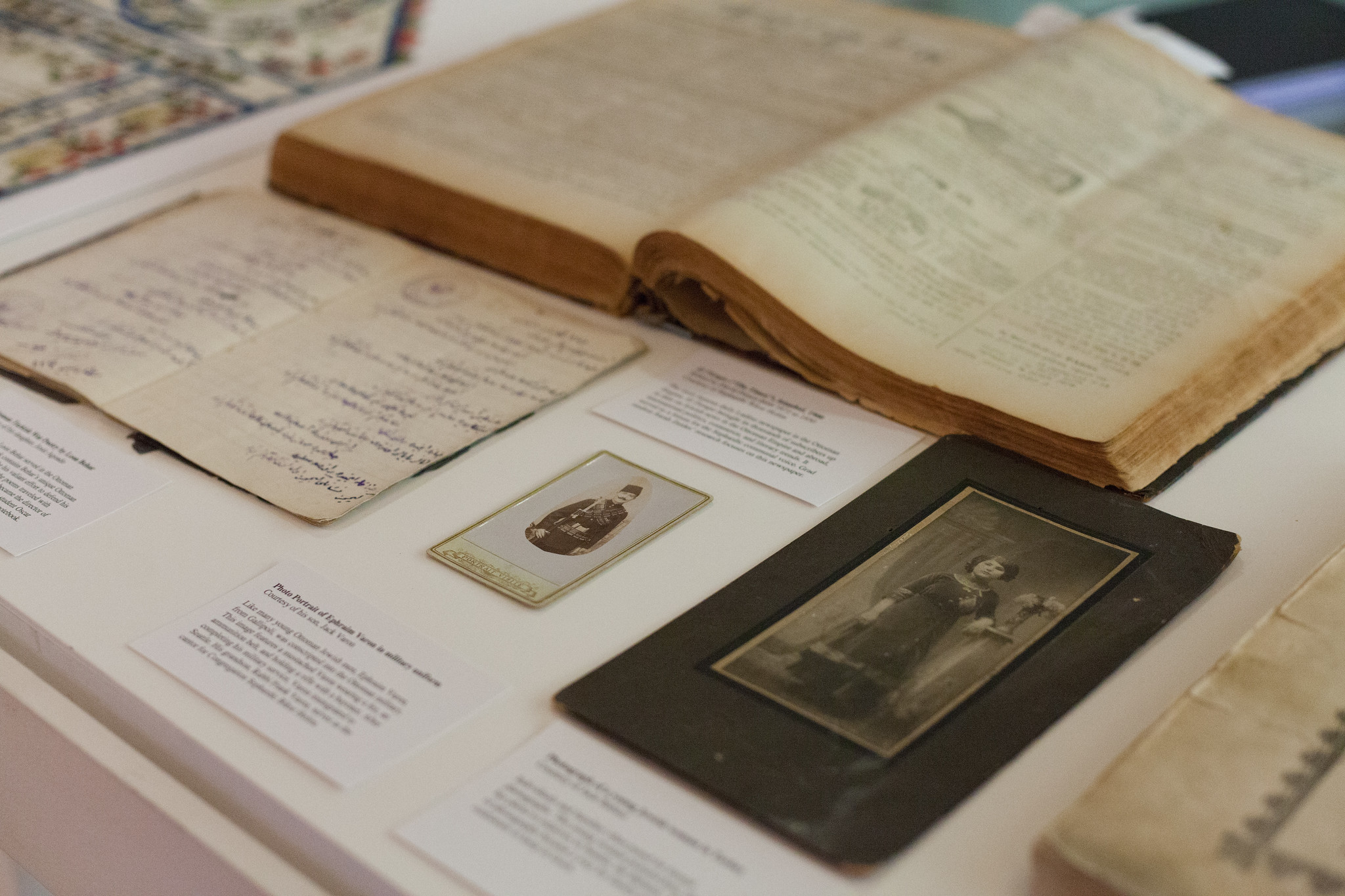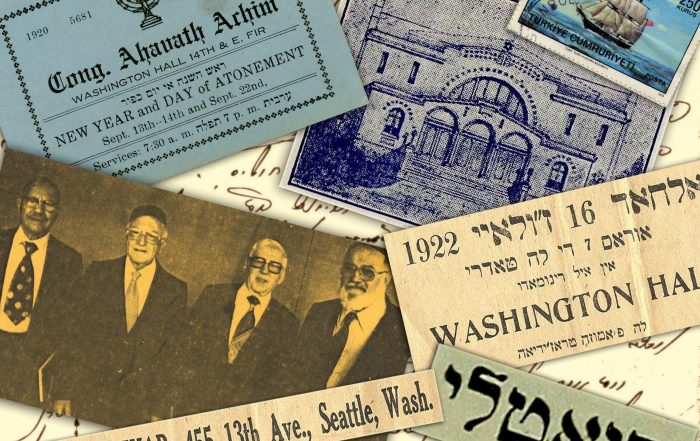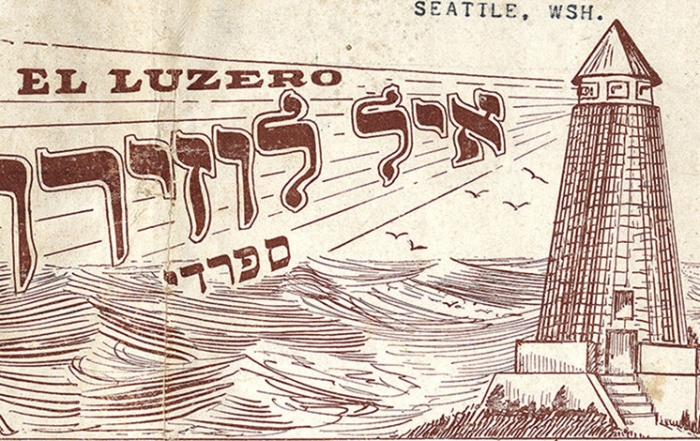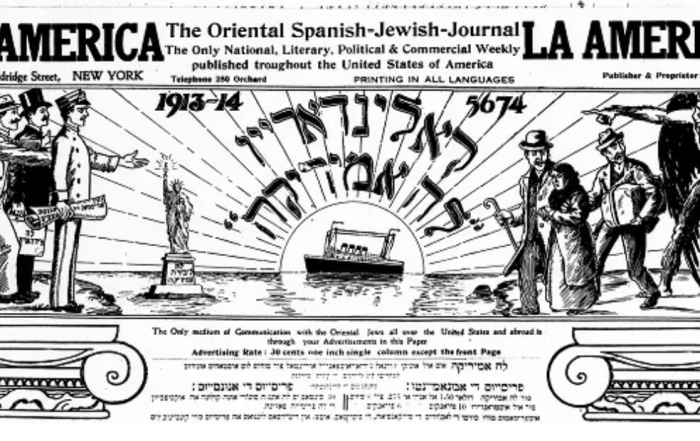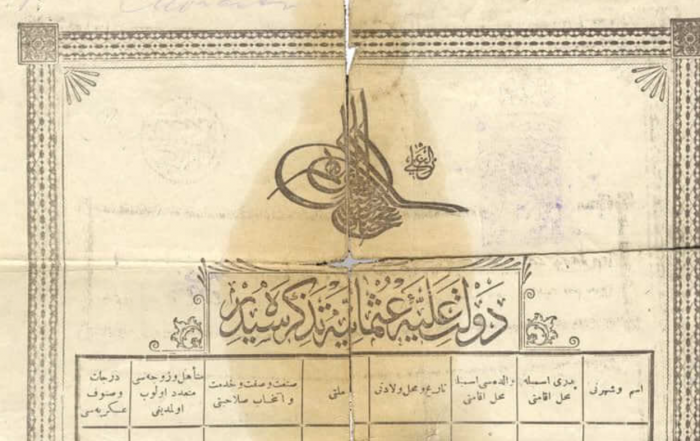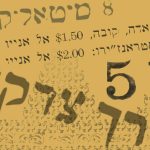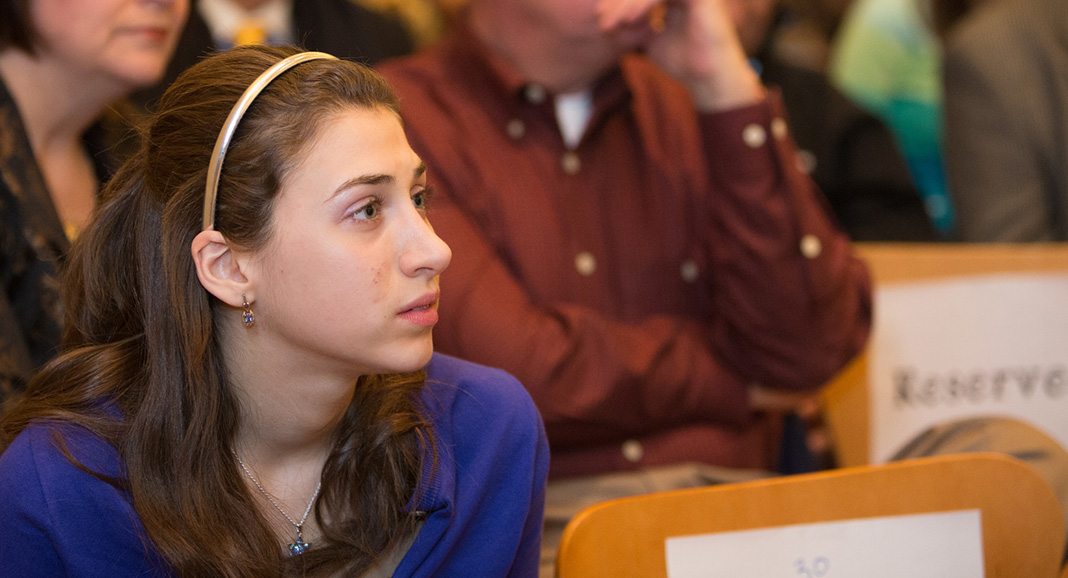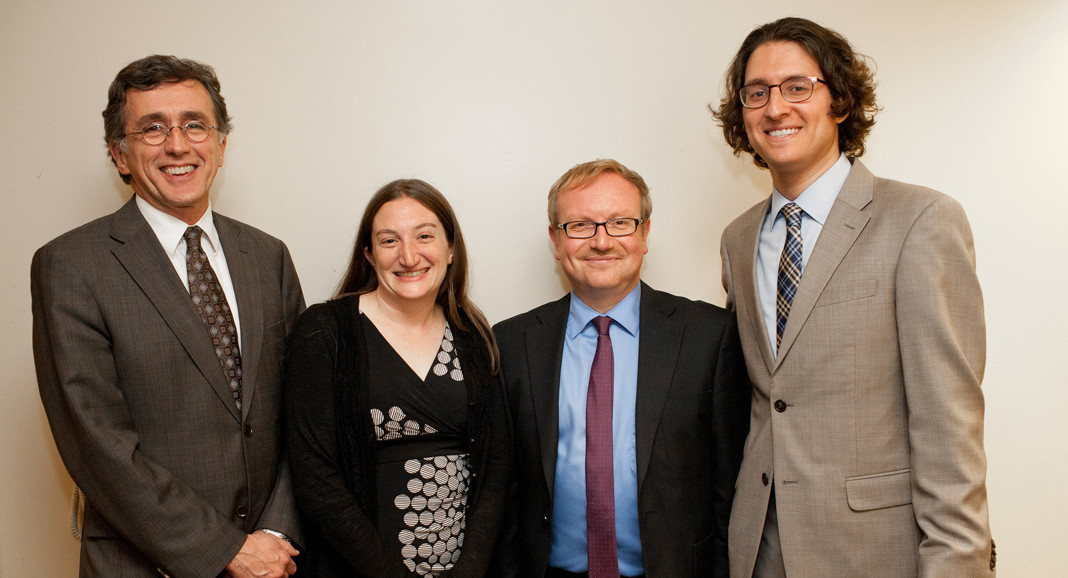The Sephardic Studies Program of the Stroum Center for Jewish Studies at the University of Washington is a world-renowned program for the research, teaching, and recuperation of the histories, cultures, and language of Ladino-speaking Sephardic Jews.
The program engages undergraduate and graduate students, scholars, and diverse publics locally, nationally, and internationally through public events like Ladino Day; digital projects and online exhibitions; innovative courses; a robust social media presence; and the Sephardic Studies Digital Collection – one of the largest online open-access repositories of Ladino books and Sephardic artifacts in the world.
Connect with Us :
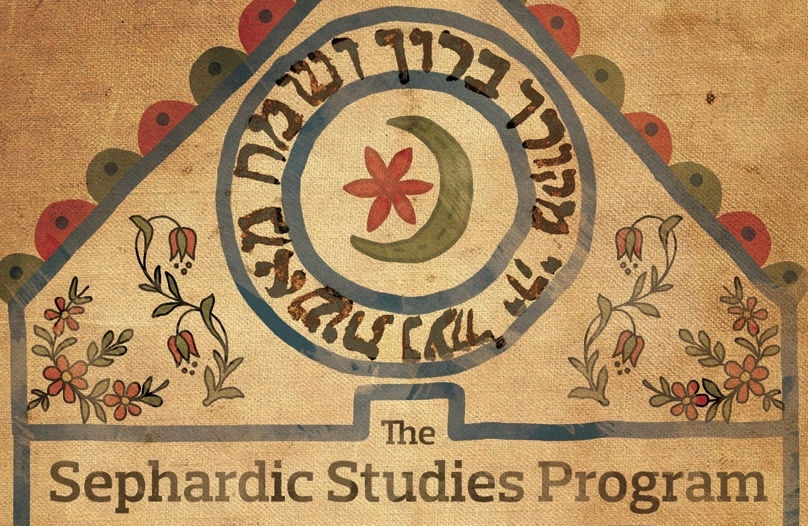
Learn more about the Sephardic Studies Program
Si Kere El Dio
Winner, general category. A conscripted husband miraculously reunites with his pregnant wife after fighting in the Balkan Wars in the Ottoman army — the great-grandfather and great-grandmother of author Nuia Menda Malki.
Mother, a Memoir
Runner up, general category. Gloria DeVida Kirchheimer offers a hilarious tribute to her feisty, theatrical mom, who came from Alexandria, Egypt, to New York in the 1930s.
Las Validjas
Winner, student category. Liza Cemel tells the story of her family's history, first across cities in Turkey, then across countries, bringing their validjas of memories and relationships with them.
Yogurt in Sephardi Life
Runner up, student category. Nesi Altaras recounts summers spent on the island of Buyukada, close to Istanbul, and the "traditional but extremely practical" feeling of being Sephardic in Turkey.
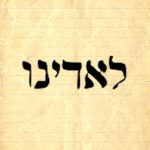 Learning Ladino
Learning Ladino
Explore digital resources to begin your Ladino language journey, and read reflections from students and faculty who have studied the language at the University of Washington and beyond. Learn Ladino >
Ladino Day at the University of Washington
Ladino Day is an annual educational and celebratory program centering the Ladino (Judeo-Spanish) language through the performance of stories and songs, and through lectures by scholars, activists, students, and community members. Learn more about Ladino Day >
Subscribe to our newsletter
Sign up to receive quarterly updates from the Sephardic Studies Program: event info, articles, videos, and more!
Seattle Sephardic Legacies
Trace the journeys of eleven Sephardic families with roots in the Ottoman Empire who came to Seattle in the early twentieth century.
Bailar a la Turka: 78 rpm Records in Seattle Sepharadi Households
Maureen Jackson investigates Turkish music in Sephardic Seattle with artifacts, audio, and more.
Sephardic Life Cycle Customs
Explore the diverse origins of Sephardic life cycle customs and trace their dynamic evolutions from the Ottoman Empire to the United States.
A Sephardic Lighthouse Museum Exhibit
Enter the world of Albert D. Levy (1896-1963), one of the leading Sephardic thinkers of 20th century, and explore writings, photographs, and documents.
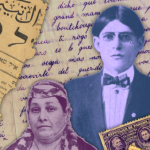 Contribute Artifacts
Contribute Artifacts
Do you have an old wedding photo from Izmir, immigration documents from Istanbul, or a Ladino book from Salonica? Consider preserving and sharing your artifact with the Sephardic Studies Digital Collection. Learn more >

Request a Translation
Get connected with qualified translators for documents in Ladino (including those written in soletreo), Greek, Ottoman Turkish, French, and more. Translation form >
Support Sephardic Studies
Make a gift to support the Sephardic Studies Program at the University of Washington and its wide range of projects and programming. Make a gift >
Both graduate and undergraduate students engage in a wide range of original research projects in Sephardic Studies through coursework, independent studies, senior theses, master’s theses, and Ph.D. dissertations. Read More >
The Sephardic Studies Program hosts a variety of events exploring Sephardic culture and history and the Ladino language. View past events >
Devin E. Naar, Sephardic Studies Program Chair & Isaac Alhadeff Professor of Sephardic Studies
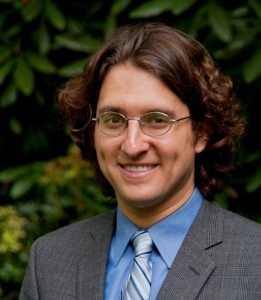 Devin E. Naar is the Isaac Alhadeff Professor in Sephardic Studies, Associate Professor of History, and faculty at the Stroum Center for Jewish Studies in the Jackson School of International Studies at the University of Washington. Born and raised in New Jersey, Professor Naar graduated summa cum laude from Washington University in St. Louis and received his Ph.D. in History at Stanford University. His first book, Jewish Salonica: Between the Ottoman Empire and Modern Greece (2016, Stanford University Press) explores the impact of the collapse of the Ottoman Empire and the rise of modern Greece during the nineteenth and twentieth centuries on the Jews of Salonica (Thessaloniki). It was awarded the 2016 National Jewish Book Award in the category of Writing Based on Archival Material; the 2017 Edmund Keeley Book Prize, sponsored by the Modern Greek Studies Association; and was a finalist for the 2016 National Jewish Book Awards in the category of Sephardic Culture.
Devin E. Naar is the Isaac Alhadeff Professor in Sephardic Studies, Associate Professor of History, and faculty at the Stroum Center for Jewish Studies in the Jackson School of International Studies at the University of Washington. Born and raised in New Jersey, Professor Naar graduated summa cum laude from Washington University in St. Louis and received his Ph.D. in History at Stanford University. His first book, Jewish Salonica: Between the Ottoman Empire and Modern Greece (2016, Stanford University Press) explores the impact of the collapse of the Ottoman Empire and the rise of modern Greece during the nineteenth and twentieth centuries on the Jews of Salonica (Thessaloniki). It was awarded the 2016 National Jewish Book Award in the category of Writing Based on Archival Material; the 2017 Edmund Keeley Book Prize, sponsored by the Modern Greek Studies Association; and was a finalist for the 2016 National Jewish Book Awards in the category of Sephardic Culture.
Read more about Professor Naar at his Jewish Studies faculty page.
Sephardic Studies Founders’ Circle
Our program is deeply grateful for the support of the Sephardic Studies Founders’ Circle:
| Ike Alhadeff Foundation | Eli & Rebecca Almo | Joel & Maureen Benoliel |
| Harley & Lela Franco | Richard & Barrie Galanti | Marty & Sharon Lott |


